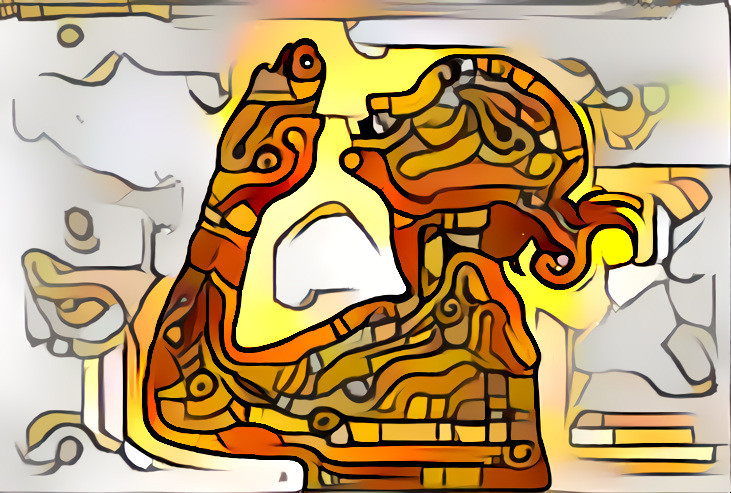
It is common for people to criticize religions for their warring contradictions or beliefs. People can feel distasteful towards monks because they think they have to become religious. We also have people who believe it is impossible for a monk to not be religious. These are common assumptions that we overlook, and it is important to address them.
Here is the short answer to this question:
- Many religions have monks, but monks are not religious!
- Some form of monks are in every religion, so the nature of a monk has nothing to do with beliefs. It is to what degree you embody what you believe.
- Your determination to learn about the nature of life and to transcend yourself is what makes a monk, a monk.
There is some core wisdom and truth to each religion
Reality, existence, the universe (whatever you call it) is a complex system.
It is so big, that it can encompass various angles and perspectives from philosophy, science, and religions and still have some kernel of truth to them (but not all equal).
Each perspective we hold are models, maps, and concepts to explain how the world works.
A monk goes beyond maps and concepts
Monks are radical skeptics who want direct experience.
If they hear there is a god, they will be like scientists, test, and observe the world!
They commit their life, meditating, praying, and learning to see the results for themselves instead of blindly believing.
This is what distinguishes monks from being religious on their own merit
Why do many religions have monks?
.
We have Buddhist monks, Christian monks, Hindu monks and so on. Each of these religions vary differently in beliefs.
What is similar about these monks?
It is their passion and value for something greater than themselves.
It is taking their discipline and involvement in life on a whole new level.
Religions commonly share these traits as well, whether it is to take refuge in the Buddha, following the ten commandments, detaching from worldly desires, or following the Holy Spirit.
However, that does not mean that monks are religious, because monks are monks regardless which beliefs they have.
That means the life of a monk is independent from religion itself because a monk is not about what you believe, it is rather a way of life.
In other words, becoming a monk will enhance and enrich any aspect of life you are pursuing.
However, a monk that is also applied to a religion or any practice of passion will take their life to the next level.
The difference between a Christian that goes to church on Sundays and a Christian monk is night and day. It is how they carry their life and to what degree they embody what they believe.
Monks are passionate about their spiritual journeys, like the life of a philosopher.
How religions and monks became partners
Culture has evolved since the very beginning. In other words, people a thousand years ago acted completely different compared to this modern era.
During the time when religions began to flourish, psychologically, people were selfish in nature. What was believed to be the best life was warlords, those with wealth and power. Wars, pillaging, and thievery, and pleasure were all key aspects of this brutal existence for individuals.
That being said, spirituality was hard to come by and was only possible in small patches of the world. To avoid violence, you either lived in hidden communes or secluded yourself as a hermit.
Religion was revolutionary. It was an early stage of advancement that brought people together, a shift from selfishness to selflessness. Religions, being a neurotic and forced form of spirituality, had its limitations. However, religions became a necessity for the beginning of human civilization.
Religion is where monks would thrive, because that was the ONLY place they could thrive with enough support (with the exception of becoming a hermit).
Monastic communes for most of human history required immense resources to remain sustainable. In other words, communes are hard to come by. Religions have passionate communities that support and attract the lifestyle of a monk because they were WILLING to fund these monk’s endeavors. Therefore, most (if not all monks) are identified as “religious” because of a strong correlation between the two throughout history. The distinction between the two are blurry.
In addition, not all of the religious communities were passionate, but were rather disciplined or aesthetic out of fear for the afterlife
Regardless of this, monks still thrived in these areas due to their self-discipline.
This is another reason why religions and monks correlate so tightly, because religions often believe in profound purpose. Because of this, both monks and religious believers admire discipline to live for a higher cause. However, the main difference is that monks authentically have self-discipline, while religions relies on forced means.
In the modern era, monks no longer need a “religious safety net” for support. Our standard of living and technology to connect to resources and support creates new opportunities for monks.
A monk does not “subscribe” to any religion. This may be shocking to hear, even possibly absurd to some.
How is it possible that even an atheist could become a monk?
Anyone who is willing to go to the ends of the earth to learn the truth can become a monk. Monks are masters of self-reflection, internal-observation, and experts of contemplation.
The essence of a monk practices radical skepticism to the point that they are willing to challenge their livelihood (their friends, their comfort, their wealth, and their old habits) to test theories themselves with direct experience to discover what is true or false, healthy or unhealthy, and so on.
That being said, you can be a monk regardless if you are Muslim, Christian, Buddhist, Hindu, agnostic, or even atheist!
What do you think about this? Share your insights with us! – Justin
